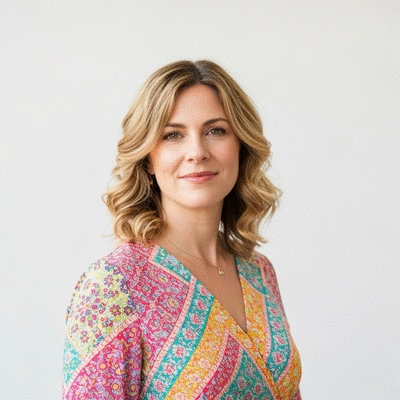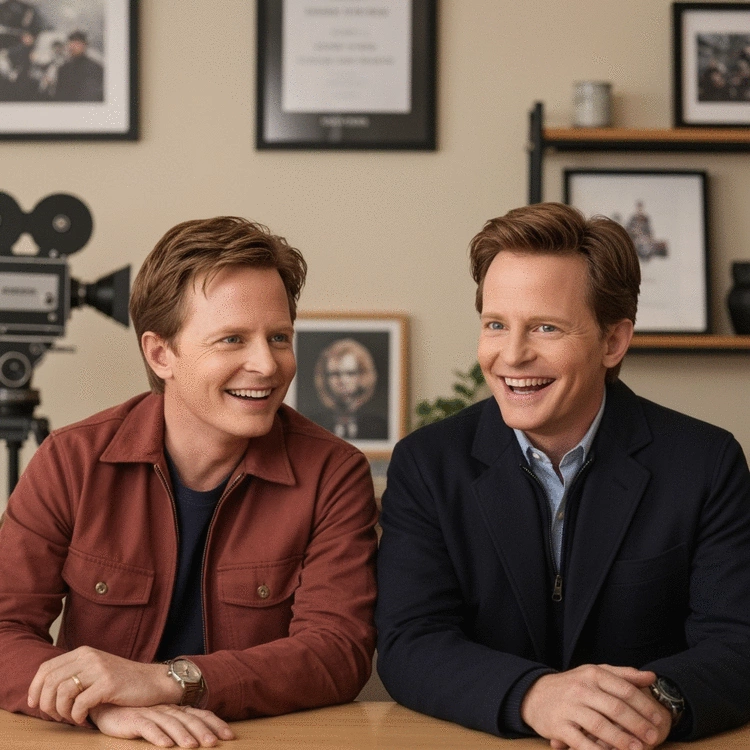What if a single casting decision could change the trajectory of two actors' careers? The reunion of Michael J. Fox and Eric Stoltz after 40 years invites us to reflect on the nuances of choice and destiny in Hollywood. Their stories remind us that the paths we take are often shaped by moments we might not fully understand until years later.
What You Will Learn
- How the casting change from Eric Stoltz to Michael J. Fox for *Back to the Future* redefined both actors' careers.
- Insights from Michael J. Fox's memoir, *Future Boy*, that provide a personal view of the emotional weight behind casting decisions.
- The vital role of director Robert Zemeckis in shaping *Back to the Future*'s vision and the importance of creative alignment in filmmaking.
- Eric Stoltz's perspective on resilience and camaraderie in Hollywood, showcasing the deep connections forged between actors.
The Enduring Legacy: Key Milestones in *Back to the Future*
The reunion of Michael J. Fox and Eric Stoltz highlights the significant impact of the *Back to the Future* franchise. Below are key aspects of its enduring legacy, including casting decisions and the iconic sequels.
Marty McFly Casting: Stoltz to Fox
Originally, Eric Stoltz was cast as Marty McFly, but director Robert Zemeckis sought a more comedic approach. Michael J. Fox ultimately took over the role, shaping the character's iconic persona.
*Back to the Future II*: Expanding the Universe
This sequel introduced complex time travel concepts and integrated themes like environmentalism and technology's future impact, significantly broadening the franchise's scope.
*Back to the Future III*: Wild West Conclusion
Concluding the saga, this installment took viewers to the Old West, showcasing the franchise's versatility and providing a satisfying resolution to the beloved characters' journeys.
Cultural Impact: Timeless Classic
Beyond entertainment, the *Back to the Future* franchise offered commentary on societal changes, cementing its status as a timeless classic that continues to resonate across generations.
Reflecting on a Hollywood Milestone: The Meeting Between Michael J. Fox and Eric Stoltz
When Michael J. Fox and Eric Stoltz reunited after 40 years, it was more than just a chance encounter; it was a moment filled with nostalgia and significance. Their meeting serves as a poignant reminder of the *Back to the Future* casting history and how it affected both actors' careers. This film, which has become a cultural touchstone, changed their lives in ways they might not have initially understood.

The significance of this reunion extends beyond personal connections. It highlights the intricate web of choices made in Hollywood that can redefine an actor's trajectory. As fans of *Back to the Future*, we often reflect on how casting decisions can shift the paths of those involved, making this meeting a remarkable chapter in their ongoing stories.
Understanding the Context of Their Reunion 40 Years Later
- The casting process that led to Michael J. Fox taking over the iconic role of Marty McFly from Eric Stoltz.
- The impact of this decision on both actors’ careers and their personal journeys in Hollywood.
- The continued legacy of *Back to the Future* and its relevance in today's pop culture.
As we delve into the context of this reunion, it's essential to remember that *Back to the Future* was a pivotal project that shaped the careers of both actors. Michael J. Fox became a household name, while Eric Stoltz's journey took a different direction. Their reunion allows us to appreciate the complexities of the entertainment industry, where such decisions can lead to unexpected outcomes.
Insights from Michael J. Fox's Memoir *Future Boy*
In his memoir, *Future Boy*, Michael J. Fox offers a candid look at his experiences during the filming of *Back to the Future* and the subsequent casting change. He shares heartfelt anecdotes that honor both the film and his relationship with Eric Stoltz. One story that stands out is how Fox initially felt about stepping into a role that had already been shaped by Stoltz's earlier efforts.
Fox’s reflections provide a glimpse into the emotional weight of that casting decision, revealing how their reunion was not just a rekindling of friendship but also a celebration of shared history. His insights remind us that every Hollywood story is layered with personal connections and the ever-evolving nature of art and collaboration.
Behind the Scenes: The Story of Marty McFly's Casting Change
Dispelling Myths: What Really Happened During the Casting Process
The story of Marty McFly's casting change is often shrouded in myth and speculation. Many believe that Eric Stoltz was simply not the right fit for the role, but the reality is far more nuanced. Stoltz brought a unique interpretation to the character, which was ultimately not aligned with director Robert Zemeckis's vision for the film. For a deeper dive into why Michael J. Fox replaced Eric Stoltz, you can read more at Syfy Wire.
This decision meant that the dynamics of *Back to the Future* were pivotal not just for the actors, but for the film industry as a whole. It teaches us that casting choices can drastically alter the trajectory of a project, opening discussions about the nature of artistic vision and collaboration.
The Role of Director Robert Zemeckis in the Casting Decision
Director Robert Zemeckis played a crucial role in the decision to replace Stoltz with Fox. His vision for *Back to the Future* was clear: he wanted a lighter, more comedic approach for the character of Marty McFly. Zemeckis recognized that Fox embodied this vision perfectly, and his decision, though difficult, was ultimately aimed at creating the best film possible.
Through Zemeckis's lens, we see the importance of creative alignment in filmmaking. It’s not just about casting the most popular actor; it’s about finding the right fit for the story being told.
Eric Stoltz’s Perspective: A Fresh Take on the Hollywood Experience
In interviews, Eric Stoltz has expressed his feelings about being replaced. While it was a challenging moment, Stoltz maintains a sense of gratitude for his time on *Back to the Future*. He acknowledges that the experience deepened his understanding of the industry and reinforced the importance of resilience in Hollywood.

As he looks back on their reunion, Stoltz reflects on the camaraderie that exists among actors, regardless of the casting outcomes. It's a reminder that Hollywood is a small world, and connections remain deeply rooted, creating an enduring bond between those who share the screen.
To see a comparison of Eric Stoltz's and Michael J. Fox's performances as Marty McFly, watch this YouTube video. Additionally, a short clip showcasing the reunion of Michael J. Fox and Eric Stoltz can be found on YouTube Shorts.
Pro Tip
When reflecting on pivotal moments in film history, such as the reunion between Michael J. Fox and Eric Stoltz, consider how these events shape not only individual careers but also the broader narrative of the industry. Embrace the lessons learned from these stories as they can inspire resilience and creativity in your own pursuits.
Summarizing the Significance of the Reunion
The reunion of Michael J. Fox and Eric Stoltz serves as a poignant reminder of the personal and professional journeys both actors have undertaken since the days of *Back to the Future*. It's fascinating to see how they have not only shaped their careers but also impacted countless fans through their performances and resilience.
Over the decades, both Fox and Stoltz have experienced significant growth. Fox, known for his indomitable spirit, has turned his career struggles into advocacy for Parkinson's disease awareness. Meanwhile, Stoltz has continued to explore diverse roles, further solidifying his standing in Hollywood. Their paths, while different, share a common thread of passion and dedication.
Exploring the Film Legacy of *Back to the Future* and Its Sequels
The *Back to the Future* franchise has left an indelible mark on cinema, with its sequels playing a crucial role in solidifying its legacy. Let's break down the impact of these films on popular culture:
- *Back to the Future II*: This sequel expanded the original's universe, introducing audiences to the concept of time travel in a more complex way, while incorporating real-world issues like environmentalism and technology's impact.
- *Back to the Future III*: Taking viewers to the Wild West, this film showcased the versatility of the franchise while also wrapping up character arcs in a satisfying way.
- Cultural Significance: The franchise not only entertained but also provided commentary on societal changes, making it a timeless classic that resonates with fans of all ages.
The legacy of *Back to the Future* continues to thrive, influencing new generations of filmmakers and fans alike. As I reflect on this, I'm reminded of how powerful storytelling can shape our understanding of the past and present. What do you think? How has the *Back to the Future* series impacted your perspective on film and nostalgia?
Frequently Asked Questions (FAQs)
Q: Why was Eric Stoltz replaced by Michael J. Fox in *Back to the Future*?
A: Eric Stoltz was replaced because director Robert Zemeckis felt his portrayal of Marty McFly was too dramatic and not aligned with the comedic tone he envisioned for the character. Michael J. Fox's natural comedic timing perfectly matched Zemeckis's vision.
Q: What were Michael J. Fox's initial feelings about taking over the role from Eric Stoltz?
A: According to his memoir *Future Boy*, Fox felt a strong sense of responsibility and respect for Stoltz's earlier work on the role. He aimed to honor the film while bringing his own comedic approach to Marty McFly.
Q: How did the casting change impact Eric Stoltz's career?
A: While being replaced was a challenging experience, Eric Stoltz maintained a sense of gratitude and used the experience to deepen his understanding of the industry and the importance of resilience. He continued to have a successful career in diverse roles.
Q: What is the significance of the reunion between Michael J. Fox and Eric Stoltz after 40 years?
A: The reunion is significant as it highlights the enduring connections in Hollywood, the profound impact of casting decisions on individual careers, and serves as a celebration of their shared history and the lasting legacy of *Back to the Future*.
Q: What is the enduring legacy of the *Back to the Future* franchise?
A: The *Back to the Future* franchise is a timeless classic that has left an indelible mark on cinema. Its sequels expanded on complex themes, offered social commentary, and continue to resonate with and influence new generations of filmmakers and fans.
Engaging with the Story: Call to Action for Fans and Readers
Now, I’d love to hear from you! What are your thoughts about the reunion between Fox and Stoltz? Do you have favorite memories from the *Back to the Future* films? Let's keep this conversation going! Share your insights and experiences in the comments below or on social media. Your stories matter, and they help create a vibrant community of fellow fans. Let’s celebrate this remarkable journey together!
Recap of Key Points
- The reunion of Michael J. Fox and Eric Stoltz highlights the impact of casting decisions in Hollywood and their long-term effects on actors' careers.
- Michael J. Fox's transition from Stoltz to the iconic role of Marty McFly showcases the complexities of creative vision in filmmaking.
- Both actors have evolved significantly since *Back to the Future*, contributing to society in unique ways, including Fox's advocacy for Parkinson's disease awareness.
- The *Back to the Future* franchise remains a cultural touchstone, influencing new generations through its storytelling and themes.
- Understanding the personal connections behind Hollywood casting decisions can deepen our appreciation for the art of filmmaking.






